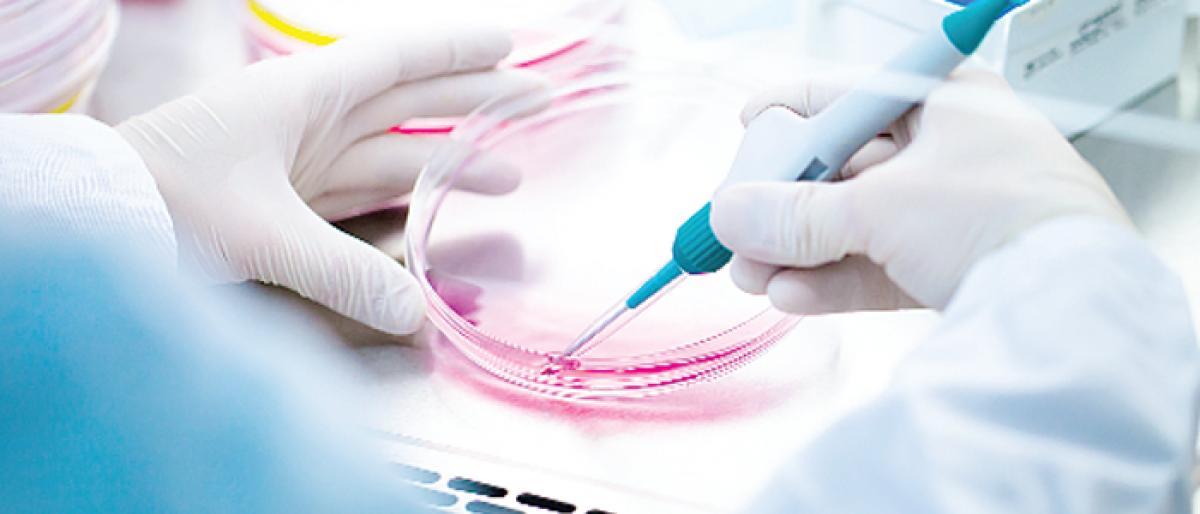A ray of hope

Infertility is on the rise among couples in India. Statistics indicate that this condition affects about 10 per cent to 14 per cent of the Indian population. Among the many factors responsible for infertility, particularly among women are stress, unhealthy lifestyle, and a condition called polycystic ovary syndrome (PCOS).
Infertility is on the rise among couples in India. Statistics indicate that this condition affects about 10 per cent to 14 per cent of the Indian population. Among the many factors responsible for infertility, particularly among women are stress, unhealthy lifestyle, and a condition called polycystic ovary syndrome (PCOS). About 20 per cent to 25 per cent of the women in India in the childbearing age suffer from PCOS, shows a study. Those with PCOS have been found to have higher than normal insulin levels. Such an increase in the level of insulin can make the ovaries produce more androgens such as testosterone. Such women, therefore, struggle with weight issues, complicating the disorder further.
PCOS and infertility
PCOS causes the development of cysts as the ovaries are unable to release eggs on time. Due to this, the follicles keep growing and form multiple cysts, which appear like a string of pearls. Women whose mother or sister had this condition are more likely to develop PCOS. The symptoms of PCOS include weight gain, fatigue, unwanted hair growth, thinning hair, infertility, acne, pelvic pain, headaches, sleep problems, and mood changes. Young girls with PCOS tend to have irregular periods or amenorrhea, and heavy or scanty bleeding during menses. PCOS can also put women at risk of other health complications such as hypertension, high cholesterol, anxiety and depression, sleep apnea, heart attack, diabetes and endometrial, ovarian and breast cancer.
Treatment and management
Though this condition cannot be cured, it can be managed through other treatment options. The treatment is tailored according to symptoms, other health problems, and whether the woman wishes to conceive. A new procedure is making it easier for women with PCOS to conceive without having to use the hormone injections and endure the associated side effects. The procedure, called IVM or in-vitro maturation, entails maturing eggs in the lab before they are implanted into the womb lining, rather than in the ovaries.
In an IVM cycle, the ovaries are not stimulated with drugs. On the contrary, a scan is carried out to study the resting follicles in the ovaries and the same needle used for an IVF egg collection is used to go through the top of the vagina. This needle then helps in draining these tiny follicles. Further, the immature eggs are taken out of the ovaries and matured in the lab for about two days. Once this is done, the procedure is the same as an IVF cycle, where the matured eggs are transferred back.
Although not used extensively in India currently, IVM can help avoid complications and pain for women wanting to bear a child. It also costs significantly lesser than IVF. In the traditional IVF procedures, women inject themselves with hormone medications for 8 to 10 days. This helps in stimulating the ovaries into producing multiple eggs for fertilisation and increases the chances of creating healthy embryos for transfer into the uterus.
However, this can be risky for women with PCOS as they stand the chance of developing ovarian hyperstimulation syndrome (OHSS). In this condition, the ovaries become swollen and painful. Therefore, IVM is slowly becoming the preferred mode of treatment for women with PCOS.
By: Dr Nandita Palshetkar
The writer is MD at Bloom IVF & President-elect of the Federation of Obstetrics and Gynaecological Societies of India.










